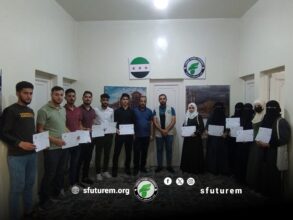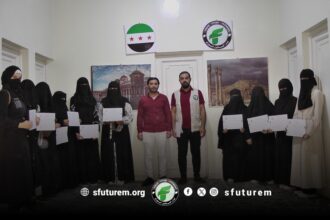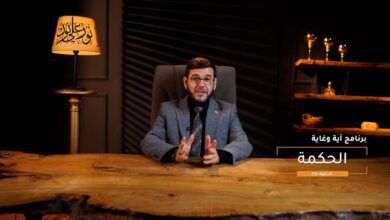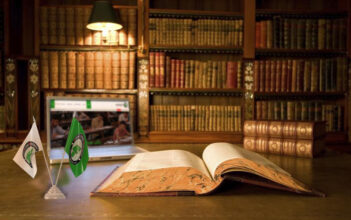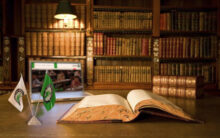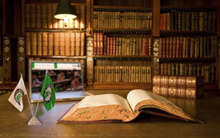7- Renewal and the fiqh of renewal (4): Dr. Ihssan Baadarani
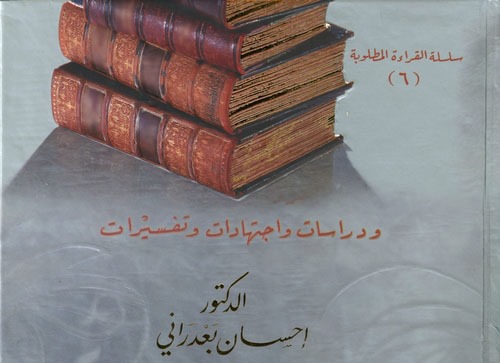
Where Are We in the Modern Era Regarding Dr. Al-Buti’s Response to Researcher and Thinker Professor Nabil Al-Khayyat, Who Advocated (Employing the Linguists’ Propositions as a Methodology to Understand the Holy Quran)? Dr. Al-Buti Said: “It is a science that dreams of using this experience as a covert means to tamper with the fixed truths in God’s religion and His book, by meddling with the rules of language jurisprudence.”
Is Dr. Al-Buti’s stance on responding to all who seek renewal to start from a self-imposed rule that says: “Suspicion is part of shrewdness, and the innovator is presumed guilty until proven innocent”?
Please allow us, with his permission, to state: Our principle in life is: “Good faith is part of shrewdness, and the innovator is innocent until proven guilty.”
Moreover, where do we stand in relation to Taher Ibn Ashur’s statement: “Sheikh Abu Muhammad Ibn Abi Yazid had a dog at his home, and it was said to him: Imam Malik disliked keeping dogs in residential areas, he replied: ‘If Malik lived in such times, he would have kept a beast at his doorstep’,” and he also said: “I do not call for the abolition of the science of jurisprudence fundamentals, but I see that it is insufficient to deal with new developments or to establish the new, rather I call for the science of Sharia objectives.”
Where do we stand in relation to Imam Shafi’i’s statement: “If the hadith is authentic, it is my doctrine, and disregard my words when contradicted by it.”
Where do we stand from his also saying: “My doctrine is correct but could be wrong, and the doctrine of others is wrong but could accept right.”
Where do we stand from Imam Abu Hanifa’s statement: “They are men, and we are men.”
Where do we stand from Imam Ahmad’s advice to Imam Abu Dawood, may Allah be pleased with them: “Do not blindly follow me, nor Malik, nor Shafi’i, nor Awza’i, nor Thawri, but take from where they took.”
And his also saying: “It shows lack of jurisprudential understanding when a man blindly follows the religion of men.”
Where do we stand from what was attributed to Al-Sha’bi who took from Said ibn Al-Musayyib, Sufyan Al-Thawri, Al-Laith ibn Sa’d, Dawud Al-Zahiri, and Al-Awza’i, and his saying: “Whatever these told you about the Prophet, take it, and what they said by their opinion, discard it into the belly.”
Where do we stand from Imam Abu Hanifa to the advocates of literal interpretation of text who, when asked, say “I do not know”, whom he mocked saying: “Let them say I do not know twice to complete their ignorance.”
And a questioner may ask: Does renewal among Islam’s reformers end up like it did among Christian Protestants on three axes?
1- Direct connection of the Christian with the Biblical text.
2- Severing the Christian’s connection with the church as the religious institution.
3- Enshrining and adopting reason as the primary and absolute reference.
And the questioner also asks:
How is the first axis applied among Islam’s reformers?
How is the second axis applied when Muslims do not have a single religious institution, but rather schools of jurisprudence, interpretation, hadith, etc., or let’s say they have a vast religious heritage?
Doesn’t renewal invite them to liberate themselves from the commitments of these schools to committing to the Quran and Sunnah?
And finally, the questioner asks:
Is the reference the text or reason?
Can the text conflict with reason?
Or is the conflict between the text and reason an artificial problem imported to Muslims?
Ibn Al-Qayyim says: “It is impossible for the wisest of rulers, the most knowledgeable of the learned, that his actions be devoid of wisdom, benefits, and laudable purposes, and the Quran, the Sunnah, reason, sound nature, and the signs all testify to the invalidity of that.”
And we return to ask:
Is renewal a theoretical necessity or a practical necessity?
Is renewal from within (the tradition) or from outside (the scholars, jurists, and mujtahids…)?
Or from both inside and outside?
Researcher Fawzi Mansour points in his book “The Arabs’ Exit from History”, to the nation’s need for a new jurisprudence to enter history anew because its modern gates do not allow entry to those insisting on entering with an old garb, old face, old style, and old thoughts and understanding.
And we quote two lines of poetry from the mujahid Abd al-Qadir al-Jaza’iri:
“Tell those who do not see the contemporary as anything,
And see the precedence for the predecessors,
That the old was once new,
And this new will become old.”
And as for the researcher Waheeduddin Khan, he points out in his book “Renewal of Religious Sciences”, to the cleansing of the divine religion from the dust that has accumulated on it, and presenting it in its original, pure, and bright form.
And as for Dr. Mohsen Abdul Hamid in his book “Renewal of Islamic Thought”, he calls for purifying the beliefs of Muslims from what has clung to them of superstitious perceptions, innovative directions, and the manifestations of overt and covert polytheism.
And as for Dr. Omar Farrokh, he sees that renewal occurs in Muslims, as it is in the title of his book “Renewal in Muslims, not in Islam.”
And as for the writer Mahmoud Tahhan, it is understood from his book “The Concept of Renewal between the Prophetic Sunnah and Contemporary Claimants of Renewal”, it is understood that every renewer is suspected of deviating from what the predecessors of this nation sanctioned, and he cites a verse of poetry from Abu Tammam:
“And aside from the Romans behind you are Romans,
So on which side will you lean?”
And we ask: Why do we seek to reconcile among the predecessors in what they differed in, and not seek to reconcile among the successors in what they differed in?
Why do we approve and are satisfied with what the predecessors went to in their ijtihads, and reject what the contemporaries go to in their ijtihads?
Some thinkers believe that renewal cannot be solely in the hands of scholars away from those in power and decision-making, but must be in cooperation with them.
Others believe that renewal cannot occur as long as the majority of Muslims are behind the stagnant scholars, and preachers of the sultans, and behind the power of the rulers.
And a third group sees that renewal can only occur by combining religious, worldly, and political renewal, all at once.
And the thinker Abd al-Mut’al al-Sa’idi calls in his book “The Reformers in Islam from the First to the Fourteenth Century”, for Muslims to hold in their minds the idea of the “expected reformer” not the “expected Mahdi.”
And we finally ask: Is the “expected reformer” only in the field of understanding religion, or in every field?
Isn’t the “expected reformer” in understanding religion one of the expected reformers in every field? That is: reforms all at once.
Finally: the mujahid Abd al-Qadir al-Jaza’iri summarized the renewal in a couplet of poetry:
“Thus God decreed for the pens since they were made,
That the swords are their servants since they were sharpened.”
